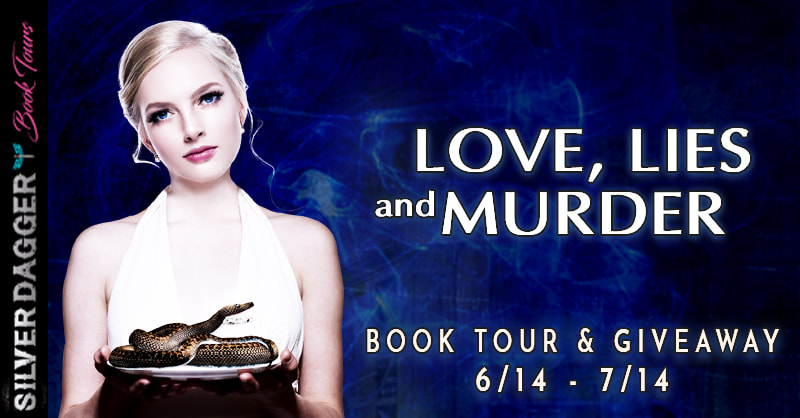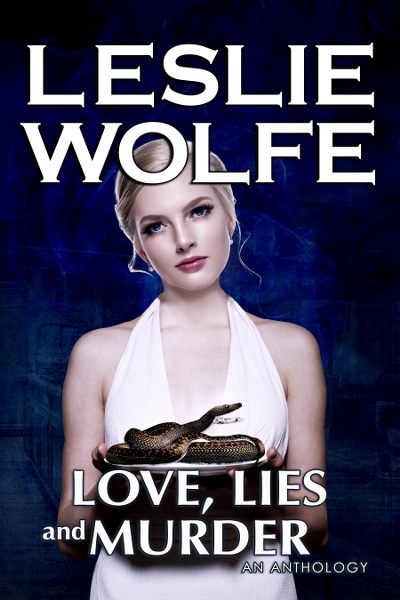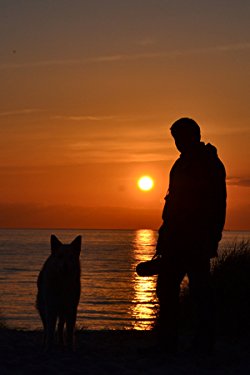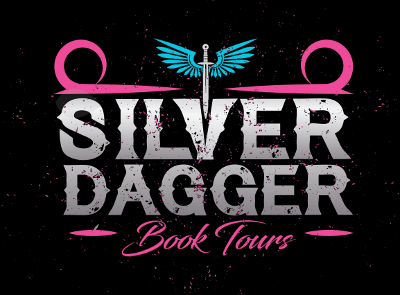Love,
Lies and Murder
by
Leslie Wolfe
Genre:
Thriller, Suspense
Breathtaking
suspense unraveling at train-wreck speed, in an unforgettable
collection.
Sometimes the
only way to do the right thing is to break the rules.
Love,
Lies, and Murder is a
collection of 19 short stories that explore the extremes of human
emotion and the conflicts that result. Every story will leave you
tense and breathless as the characters race to a conclusion that is
as unexpected as it is satisfying.
Intense and gripping, each
story features a hero that seeks justice and the triumph of good over
evil by whatever means necessary—regardless of what society’s
rules find acceptable.
The collection is taut, visceral, and
addictive. All the emotions we feel every day, when taken to their
extremes, offer a roller coaster of passion, conflict, and
chills.
Nineteen droplets of
suspense in a thrilling anthology that will leave you unsettled,
longing for more.
Fans of
David Baldacci, Robert Dugoni, and James Patterson will love reading
Leslie Wolfe.
**Only
.99 cents!!**
He ran parallel with the train as fast as he could, reaching for the handlebar and trying to figure out how he could hop inside, when the freight car was that high. It was above his waist level, and he needed to grab onto something with both his hands and pull himself inside the car, if he didn’t want the risk of slipping under the car and losing one or both of his legs in the process.
Freight train hopping was more difficult than he’d expected. He was almost out of breath and the train seemed to move faster, catching speed, while the distance between his extended hand and the handle he was aiming for increased inch by inch. At least that car had its door wide open and seemed empty. If he could only push forward some more, gain up on the damn thing, come close enough to venture a foot up that step, while grabbing onto the handle.
The train squealed and slowed down, as the tracks curved a little, and he pushed himself to run faster. Then he lunged forward with the last drop of energy he had left, and grabbed that handle while his left foot found the wide step underneath the car’s open door. His right arm flailed in the air, desperately looking for something to grab, while his body was pushed backward by inertia. Then he felt a strong hand grip his right wrist and yank him up forcefully. He landed face down on the car’s floor, while the same strong grip dragged him all the way inside.
“A thing like that could get you killed out here,” he heard a man’s voice say calmly.
He looked up at the man who’d pulled him inside. He was young, barely twenty years old, if even. His face was grimy, smudged with dust and sweat and dirt, and his clothes were nothing unexpected for a habitual train hopper. His blue eyes were fixed on his Rolex, and he quickly covered it with the sleeve of his windbreaker.
Still panting hard, he pulled himself up to his feet and shook the young man’s hand.
“Thanks,” he said, “I appreciate it.”
“Huh,” the young man replied with a grin, dazzling white teeth sparkling against the grime on his face. “You should.” Then he laughed, a quick laugh cut short by a few coughs. “You’re no train-hopper material, dude,” he continued when he was able to catch his breath. “What, you got lost, or somethin’?”
“Nah,” he replied, still panting. “Just looking for someone.”
The young man whistled. “So, you got a place to live, and nice clothes, and food, but you hop trains for fun?”
“Not for fun, no. I’m looking for my brother,” he replied. “Someone said he might have been riding freight trains through these parts of the country.”
The young man gave him a good look, head to toe, and he felt he was being evaluated. Maybe the kid was thinking how much money he had on him, or if it was worth killing him. He held his gaze steadily, unafraid, glad to feel the holster of his weapon tight against his ribs.
“Name’s Travis,” the kid said, extending his dirty hand again.
He took it and shook it firmly. “Jack.”
“Got some food on you, Jack?”
He hesitated a split second, then took out two of the chocolate bars he’d stuffed his pockets with before leaving the city.
Travis took one carefully, almost as if he expected him to slap him or punch him or something. Then he whistled again, and slowly unwrapped the bar, savoring the experience. Then he wolfed it down in two good bites, chewed hastily with his mouth open.
“Umm, good stuff.”
Jack watched him eat and felt something tug at his heart. This kid was about the same age as Conrad, his younger brother who had vanished almost two months ago. Conrad was going home from school one day, and it was later than usual. He’d stayed at school longer, working in the lab with three other med-school students, colleagues of his at Northwestern University Feinberg School of Medicine, and those three students were the last people to have seen him.
From the lab, he had to cross the campus and walk a few blocks through Streeterville, to the Brown Line train station. From what Jack was able to deduct, it was already dark when Conrad had left the university about seven, his banjo strapped on his back, and a small backpack in his hand. That’s the way his colleagues described his appearance that day. He was his normal self, maybe a little tired after a long day studying countless blood samples on the electronic microscope, and he’d told everyone he was hungry.
Then he vanished. When he didn’t come home that night, Jack had called the cops, but Conrad was an adult and they weren’t going to open an investigation for at least twenty-four hours. His brother’s phone was going straight to voicemail and, lacking any other means of investigating, Jack had gone to the university the next morning. He talked with Conrad’s colleagues and heard that he had been in a good mood the day before, doing his usual routine after lunch, when he sang a couple of songs in front of the building for his cheering colleagues and passersby. There was no girlfriend who anyone knew about, nor did he seem disturbed by anything. He’d just left the night before, going home, as he normally did.
Only he’d never made it home.
Jack retraced his steps, with the help of a couple of students who’d walked to the Chicago/Franklin Brown Line with Conrad before, and knew which side of the street he liked to walk on, and where he usually stopped for a snack before hitting the train station. He walked the same street, by the ballpark, carefully observing every detail, yet almost missed the white wood shards that littered the street corner, next to some tangled, coiled banjo strings.
When he realized what those were, all the blood rushed to his chest and his heart thumped heavily, as if fighting to escape his chest cavity. He dropped to his knees next to the scattered pieces of wood, and took one in his hand, gently running his fingers over the glossy finish. Then he crouched lower, looking under the nearby trash can and saw a photo, barely showing from underneath some street litter. He grabbed it with two fingers and held his breath. He already knew what it was, an old photo of Conrad and him, when they were much younger, taken the day Jack had bought Conrad the banjo.
That day Jack had taught him how to play it, and Conrad, a talented guitarist and a natural for anything with strings, was playing the theme song from Doctor Zhivago before the end of the day. Not perfectly, but it was recognizable, and soon thereafter it was better, the twangy sound of the banjo warm and full under his fingers, sounding more and more like the balalaika in the original theme song. Since that day, Conrad had kept their picture tucked inside his instrument’s pot, taped in place with a piece of transparent adhesive tape still clinging to the photo in Jack’s hand.
He moaned loudly when he noticed the bloodstain on the photo, and, as if living through a nightmare, he heard one of Conrad’s colleagues make a 911 call.
Nothing happened after the cops came; nothing useful anyway. Yeah, they’d confirmed the blood on the photo was his brother’s. But that’s where the trail went cold, despite countless video cameras scattered in the area, and endless interviews with pedestrians whose normal commute took them along the same street at about the same time of day. Then they speculated Conrad might be dead, a John Doe in some morgue, or an amnesic lost somewhere in the hospital system. But they couldn’t find him anywhere, not in any morgue or hospital.
Jack didn’t trust the police would do a good enough job. Per their official statement, they didn’t have anything to go on. No other evidence, no body, no witnesses. Instead, they had countless crimes happening in Chicago every day, so many they were overwhelmed with work and unable to continue pursuing a case that had gone cold that quickly. But Jack didn’t give up. He took the rest of the semester off, leaving his students in the capable hands of a colleague, and took to the streets, determined to find out what happened to Conrad. He talked to people, and spent day after day at that street corner, with Conrad’s photo in his hands, showing it to everyone.
He was about to give up, defeated, although he still dreamed at night that his brother was out there somewhere, waiting for him, needing his help. But he’d already spoken with everyone, and he recognized almost all the people who commuted on that street on a daily basis. He kept going to that street corner though, as he’d done every day for the past month, and showed Conrad’s photo to anyone willing to take a look. More and more people threw sympathetic, sad glances his way, while slowly shaking their heads; no, they hadn’t seen him. Not then, not since.
Until one day, he found a homeless woman at that street corner, going through the trash can with shaky fingers. She stared at the photo for a long time, then said she must have been mistaken, because the man she’d seen still had his banjo. It was banged up, but the man still played, mostly at night, riding the freight trains. She’d seen him on the Burlington Northern Santa Fe rail, headed south, like many others, fleeing the cold and bitter wind of Chicago winters. Or maybe it was Union Pacific? She didn’t remember. Probably he was going to California, but she wasn’t sure; the man she’d seen didn’t talk. He just played sad songs, she’d added, some reminding her of movies she’d seen, many years ago when she still was somebody who had a life.
Now, looking at that kid munching on the second chocolate bar, he only hoped that someone out there had shared their food with Conrad, wherever he was.
“So, who you’re looking for?” Travis asked, wiping his mouth with an off-brown sleeve.
Jack took out Conrad’s photo. “This is my brother; his name is Conrad. He disappeared from Chicago, two months ago. Have you seen him?”
Travis smacked his lips and sucked his teeth. “What if he don’t wanna get found, huh? Man’s got the right to roam free, ya know.”
“If I find him and he tells me to get lost, I will,” Jack said. “Have you seen him?”
Travis thought for a while, biting his lower lip. “I should be smarter than this and milk you of some cash, but you’re an okay guy. No, I haven’t seen him, but train beaters barb about some guy playing a banjo on them trains.”
“Where? When?” Jack asked, suddenly invigorated.
“On the UP lines, mostly, back and forth from California. It’s like the man doesn’t wanna get anywhere; just wants to ride. Maybe he’s a gypsy, not like you and me. But that’s just what I heard tramps talk, that’s all. I haven’t seen him.”
“What the hell is a UP line?” Jack asked, frowning impatiently.
“Union Pacific, man. You gotta learn your trains if you want a future that don’t end up in the big house.”
Jack scrambled to the car’s open door, looking outside as if getting ready to jump off the train.
“Whoa, hold it; you’re on a UP train now. Relax.”
He still stared into the darkness of the moonless night, letting the wind cool off his burning face. One second his heart swelled with hope, and then next it dropped to the abyss of despair. How was he going to find Conrad among so many trains, going in all directions? He could spend years searching and not find him, passing him in the night without even knowing.
Then he turned toward Travis, a glimmer of renewed hope glinting in his eyes. “Will you help me? I got money. I got more in the bank. I just want to find him.”
Travis stared at him for a long moment, then muttered, “Uh-huh, it’s not like I got any prior engagements, if you know what I mean,” he laughed, then coughed some more. “Get some sleep. We’ll need to change trains, hit the California line.”
Jack sat on the dirty floor, leaning against the car’s rusty wall, and tried to doze off but couldn’t. The train was going faster, rattling and chugging rhythmically against the tracks. Then it slowed and pulled into a side line where it stopped with a long, screeching sound of iron against iron.
“Uh-oh,” Travis said, jumping to his feet. “Not good. Bulls might come.”
“Say what?”
Travis rolled his eyes. “Bulls, as in railroad cops. They catch us here, we’re screwed.” He leaned outside, checking the surroundings. It was quiet and dark, nothing moved.
“Ah, we’re cool,” he said, “we’re on a branch line. They’re keeping us parked here until another train passes us by. We’re low priority,” he scoffed, “we’re unimportant. What else is new?”
Then he curled on the floor, hands folded under his head in a makeshift pillow. “Great time to nap,” he muttered, half-asleep. “It’s quiet for a bloody change.”
He followed suit, but only leaned against the car wall as he’d done before; he couldn’t bring himself to put his face on that grungy floor. The long hours caught up with him, because he dozed off without even knowing it. He dreamed of his brother, playing the banjo, and sometimes singing with it, although he always thought his voice didn’t reach the skill of his fingers. But whenever music transported him, he added words and vocals to the instrument, and Jack loved the end result, although Conrad didn’t always. Then the sound of a chugging train overlapped, almost drowning the banjo chords, and his eyes opened wide. He lunged to the door and held his breath.
There it was, faint, disappearing with the passing train, the sound of a banjo in the darkness. Without thinking, he got off the train and started running to catch the other one, his feet unstable against the loose ballast. He didn’t care, and he forged ahead, clinging to the sound of that banjo as if it were a lifeline. Then he heard Travis behind him, coming fast.
“Move it, if you wanna catch this one, it’s a dicer! Move your ass!” he yelled, and slapped his back as he passed him. He was younger, taller, faster, all helpful traits with train hopping.
Travis got his footing on a car and pulled himself inside, then yanked his arm and Jack let himself be pulled up, flailing desperately until he landed on the dirty floor of a freight car covered in loose straw that stunk of cow dung. But he didn’t care; if he listened hard enough, somewhere under the chugging noise of the train, he could still hear the sound of the banjo.
“How do we get to him?” he asked, as soon as he could catch his breath.
“Ever been on a train car before?” Travis asked. “On top of it?” he added, gesturing with his finger.
He shook his head.
“It ain’t that hard, I’ll teach you,” Travis said. “Let’s wait until we clear the branch line. Someone might see us.”
Jack looked at the kid with unspoken gratitude. He could’ve robbed him by now, taken his money, his cards, and his watch, or just killed him altogether. Instead, the kid was helping him, without asking for anything in return.
“What’s your story?” Jack asked. “How come you’re here?”
Travis smiled crookedly and turned away a little. “It was either this, or the system. My mom died, and they came to get me. My foster family was crooks, really bad people. I couldn’t stay.”
“How old are you?” Jack asked.
“Almost eighteen,” Travis replied. “Soon I’ll be able to do something other than ride these trains. Don’t know what, and don’t know how, but at least they won’t chase me no more.”
Slack-jawed, Jack found himself at a loss for words. He worked with young people, he was used to seeing them in school, clean and fed and loaded with attitude, texting and laughing and undisciplined. He wasn’t prepared to see someone so young battle life on his own like that, starving on a train.
“Let’s get going, we’re good now,” Travis said. “This cannonball’s slowed down a little.”
He led the way, demonstrating skill and athletic dexterity in getting them to the end of the car, then on top of the next car. From there, knees shaking worse than they’d ever done, Jack crawled on all fours behind the daring, young boy, who walked the train upright, wind in his face, unafraid as only teenagers can be.
As they got closer to the engine, the sound of the banjo grew louder, clearer, and Jack started to recognize some of the songs his brother used to play. Energized, he felt his fear vanish, and came down from the car’s rooftop like a pro, imitating all of Travis’ moves without hesitation. Then Travis pulled open a panel, and they entered the car where the banjo sounds were coming from.
It was dark, and the open side door only let occasional, distant light come in. The man didn’t stop playing when they entered, and didn’t look at them. He continued to play, his fingers comfortable and accomplished on the strings. Jack approached him, holding his breath.
“Conrad?” he called, but the man didn’t stop playing.
He stared at the man and didn’t recognize his brother. It was dark, and the man wore an unkempt beard that could have been growing for about two months. His clothes were so grimy, he couldn’t tell if they were the ones Conrad had last been seen wearing. Jack resigned to listen,crouched on the floor next to the man, not daring to breathe. Soon a new day would break, and he’d know.
When the early light broke through the panels of the freight car, the man laid his banjo on the floor and closed his eyes. Jack searched the man’s face, looking for a familiar trait, and couldn’t be sure.
“Conrad,” he called again, quietly. “It’s me, Jack,” he said, touching the man’s arm.
The man kept his eyes closed, as if sleeping.
“May I?” Jack asked, gesturing toward the banjo, but the man didn’t say anything and didn’t open his eyes.
He took the banjo gently and started playing “Lara’s Song,” the theme music from Doctor Zhivago. In his hand, it sounded weird, almost unrecognizable; he’d never had Conrad’s talent, only schooling. Note after note, the music came back to him, and his playing became stronger, more confident, and more recognizable.
When he started playing the unmistakable chorus, the man’s eyes opened, and in those green irises Jack recognized his brother. He smiled and continued playing, hoping Conrad would say something, but he remained quiet. He watched Jack play the entire song, his eyes speaking volumes, but his words absent.
Then Jack set the banjo down and took out the photo. Conrad looked at it without a sound, but after a while, he took it and tucked it inside his banjo.
“Yes, yes,” Jack exclaimed, “that’s us, Conrad. You and me.” Whatever had happened to his brother, there was still a part of him left intact, buried deep inside that man, and that part would guide Conrad home, just as it had helped him find another banjo to replace the broken one.
The train screeched and stopped, and Travis quickly pulled the door shut. “Trouble,” he said. “Be quiet. We’re in a big station; I believe it’s Yuma.”
“Good,” Jack replied, and helped his brother to his feet. “We’re going home. Come on, Conrad, let’s go.”
He pulled the car door open and jumped off, then Travis handed him the banjo and helped Conrad down. The kid’s eyes were hollow, and his lower lip trembled a little. Jack took his hand to his pocket, and then changed his mind.
“You too, kid.”
Travis stood there, in the doorway, staring, stunned.
“Yeah, you’re coming home with us. Come on, it will be fun to have another brother. We might even teach you how to play the banjo.”
Leslie
Wolfe is a bestselling author whose novels break the mold of
traditional thrillers. She creates unforgettable, brilliant, strong
women heroes who deliver fast-paced, satisfying suspense, backed up
by extensive background research in technology and psychology.
Leslie
released the first novel, Executive,
in October 2011. It was very well received, including inquiries from
Hollywood. Since then, Leslie published numerous novels and enjoyed
growing success and recognition in the marketplace. Among Leslie’s
most notable works, The Watson Girl
(2017) was recognized for offering a unique insight into the mind of
a serial killer and a rarely seen first person account of his
actions, in a dramatic and intense procedural thriller.
Leslie
enjoys engaging with readers every day and would love to hear from
you.
Become
an insider: gain early access to previews of Leslie’s new novels!
Follow
the tour HERE
for exclusive excerpts, guest posts and a giveaway!









No comments:
Post a Comment